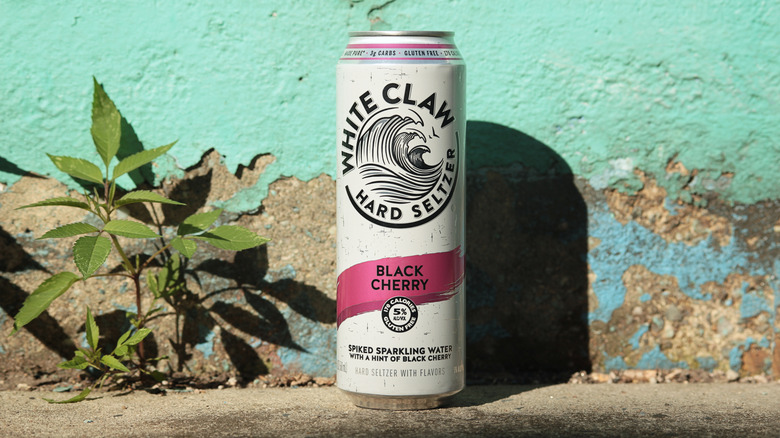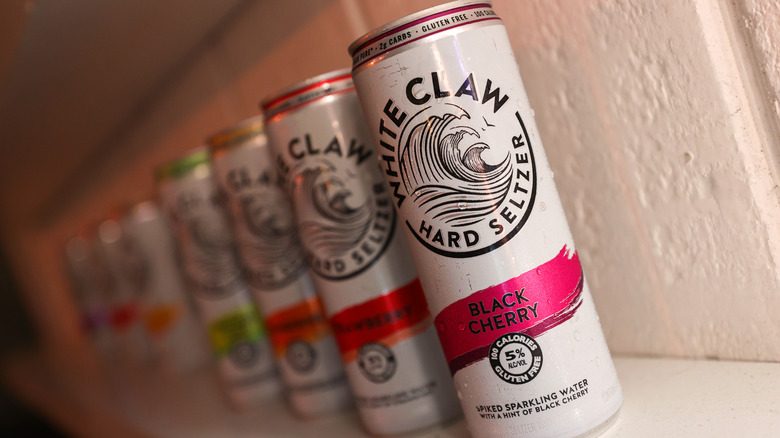What Kind Of Alcohol Is In White Claw's Hard Seltzers?
Hard seltzers have surged in popularity in recent years. A 2024 study by CivicScience reported a steady rise in hard seltzer interest among drinkers in the United States since 2020. The study also revealed that 46% of adults over the age of 21 have tried hard seltzer, with another 11% planning to try it. While a hard seltzer can certainly bring on a buzz, the type of alcohol in these drinks isn't always clear.
According to White Claw's official website, the sparkling beverage is "made from a blend of seltzer water, our gluten free alcohol base, and a hint of fruit flavor." While this is great news for those with gluten sensitivities, the type of alcohol described is still a bit vague. Upon further research, however, we discovered that the alcoholic base that White Claw references is actually a type of malt beverage made from the fermented sugars of gluten-free malted grains.
The alcohol content present in a White Claw cannot be exactly classified as a beer or a spirit in the traditional sense, making way for a brand-new category of drinks known as hard seltzers. While White Claw wasn't the very first brewing company to bring hard seltzers into the world, it quickly earned the title of most popular by a large margin after it debuted on shelves back in 2016.
How strong are White Claws, really?
If you're hoping to get tipsy while sipping on White Claws, you will likely have to crack open more than one. The typical White Claw contains 5% ABV, which is approximately the same amount as a standard 12-ounce can of beer, and less than half the alcohol content present in a glass of white wine. While everyone has a slightly different tolerance to alcohol, most people begin to feel the effects of the alcohol content present in White Claws after enjoying multiple cans within a short time span. For context, after consuming four servings, most people's blood alcohol content reaches 0.08%, which is the legal standard indicating intoxication.
If you're worried about battling a gnarly hangover after sipping on White Claws, there is good news and bad news. While the myth that sugary cocktails lead to a worse hangover has long since been debunked, there is one reason to be cautious about the sweetness present in a White Claw. Because the drink's alcohol content is mostly masked by fruity flavors and a fizzy texture, you might be more likely to consume a few extra seltzers than you would an extra-strong dry martini, which can lead to a more powerful hangover the next day. As long as you keep an eye on your intake and practice safe drinking habits, you should be A-OK the next day.


